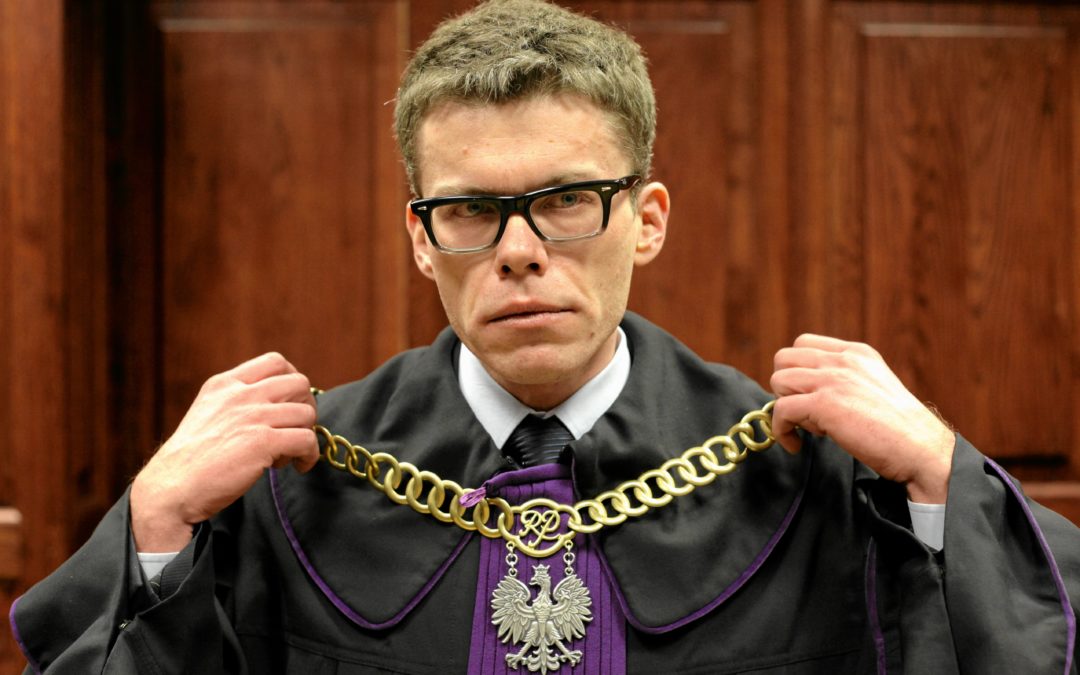Igor Tuleya, a vocal critic of the Polish government’s judicial overhaul, could become the first judge to be punished for misconduct using the country’s controversial new disciplinary rules.
The newly created disciplinary chamber of the Supreme Court – which was deemed illegal by the Supreme Court itself – will decide in March whether to waive the immunity of Tuleya, thereby opening him up to criminal proceedings launched by prosecutors, reported OKO.press, an investigative journalism site.
Tuleya is accused of failing to perform official duties and exceeding his powers during a ruling three years ago. The judge, however, claims that the charges against him are “political” and “tangible evidence that Poland is no different from Turkey”, reported Gazeta Prawna
The issue stems from Tuleya’s decision in 2017 to annul a decision by prosecutors to discontinue an investigation into the potentially unlawful passing of the government’s budget by parliament. Because the opposition were holding a protest occupation of the parliamentary chamber at the time, the speaker – who is from the ruling Law and Justice (PiS) party – moved the session to another room, the Column Hall.
After the vote, opposition MPs notified the prosecutor’s office of alleged restrictions on participation in the impromptu session and raised doubts as to whether the necessary caucus was reached.
Prosecutors later decided to discontinue the case, but Tuleya overturned that decision, ruling they should proceed and also noting potentially false statements made by 230 MPs, mainly from the ruling coalition. The case was nonetheless discontinued once more by prosecutors in 2018.
Now, prosecutors claim that, by allowing journalists to attend and record those proceedings, Tuleya allowed the public disclosure of details of the case to “unauthorised” people. That is to serve as grounds for launching criminal proceedings against him.
??Powiadamiamy! ??Prokuratura Krajowa chce postawić sędziemu ⭐Igorowi Tuleyi zarzut karnyzwiązany z czynnościami sądu…
Opublikowany przez Iustitia Polska – "Polish Judges" Środa, 26 lutego 2020
In an interview today, Tuleya said that “no information which was not known earlier to the public was disclosed [at the hearing which he presided over]. After all, we could all watch what happened in the Column Hall thanks to independent media.”
He added that he would not refuse to stand before the disciplinary chamber, since “according to a ruling of the three [other] chambers of the Supreme Court, the disciplinary chamber is not a court”.
Previously, the prosecutor’s request to strip Tuleya of his immunity would have been heard by the disciplinary court at a court of appeal. But, under the government’s new disciplinary system, that task now falls to the disciplinary chamber of the Supreme Court, which will consider the motion on 20 March.
That chamber was created under PiS’s judicial overhaul, and all of its members were chosen by the National Council of the Judiciary, which was also reformed by PiS and declared by the Supreme Court to be “not an impartial and independent body”.
The disciplinary chamber was granted stronger powers by legislation signed into law by the president earlier this month. It allows for the punishment of judges who question the government’s judicial overhaul and engage in unspecified “political activities”. It been criticised by the domestic opposition as well as EU institutions as well as representatives of the OSCE, Council of Europe and the UN.
Poland has taken "a major step towards legal Polexit" from the EU, warns Commissioner for Human Rights @Adbodnar, after President @AndrzejDuda signed into law a new disciplinary system for judges who refuse to recognise the validity of judicial reforms https://t.co/Zan1pa8zGR
— Notes from Poland ?? (@notesfrompoland) February 4, 2020
“From the start one had to account for the consequences of issuing the ruling regarding the parliamentary majority vote in the Column Hall. I also was aware of them,” Tuleya told OKO.press. “I am probably one of the pests that are to be eliminated.”
Tuleya first gained prominence in 2011 during the trial of acclaimed heart surgeon Mirosław Garlicki, who, during PiS’s first term in office, was accused of accepting bribes, of sexual harassment and of killing a patient.
While Tuleya found Garlicki guilty of taking cash and gifts from patients, the other charges were dropped. He also used the ruling to spotlight the methods used by prosecutors and law enforcement under the PiS-led government, such as late-night interrogations, threats and unfounded detention of witnesses.
Since returning to power in 2015, PiS has branded Judge Tuleya’s rulings as “political” and held him up as evidence of corruption in the judiciary, for which its reforms are meant to be the antidote.
“None of the changes they have made in the last four years have made the courts more efficient, transparent or friendlier toward citizens,” Tuleya told the New York Times in January. “All they have meant to do is fill key positions with loyalists.”
"Judge Igor Tuleya has faced threats, fake anthrax attacks and denunciations in the right-wing news media as he fights the government’s campaign to control the courts"@nytimes #SaturdayProfile https://t.co/0u9qZSWsks
— Notes from Poland ?? (@notesfrompoland) January 11, 2020
Main image credit: Slawomir Kaminski/Agencja Gazeta

Maria Wilczek is deputy editor of Notes from Poland. She is a regular writer for The Times, The Economist and Al Jazeera English, and has also featured in Foreign Policy, Politico Europe, The Spectator and Gazeta Wyborcza.




















